June 2, 2025 | 22:54 GMT +7
June 2, 2025 | 22:54 GMT +7
Hotline: 0913.378.918
June 2, 2025 | 22:54 GMT +7
Hotline: 0913.378.918
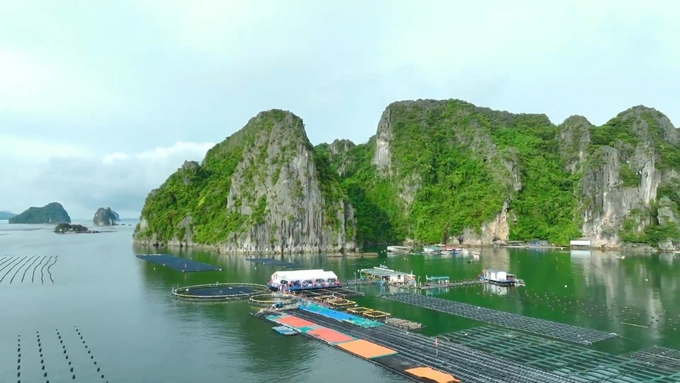
Quang Ninh has advantages and potential to develop marine farming, aiming for export. Photo: Nguyen Thanh.
At the seminar on green growth agriculture, Minister of Agriculture and Rural Development (MARD) Le Minh Hoan assessed that the agriculture of Vietnam and Japan has many similarities. Vietnam always considers Japan an exemplary model to study.
"Agricultural cooperation between the two countries in recent times has made an important contribution to developing Vietnam's agriculture. Japan is supporting Vietnam to implement the industry strategy until 2030, with a vision to 2045, by changing thinking from agricultural production to agricultural economics. Vietnam's goal is to achieve ecological agriculture, modern rural areas, and smart farmers", Mr. Hoan said.
According to the MARD head, the world market is now open. However, the agricultural industry must continue to innovate production thinking, standardize, and perfect all processes so that products can be trusted.
Vietnam is restructuring the agricultural sector towards production associated with competitive advantages and market requirements. The agricultural industry also expects the Sustainable Agriculture and Rural Development Strategy to be widely spread to properly position the role and mission of agriculture, rural areas, and farmers.
The Minister of MARD hopes that the agricultural sector will improve productivity and output while integrating multi-value, creating added value based on the effective exploitation of scientific and technological resources, and innovation, digital transformation, and organization connecting agriculture with the processing industry, markets, exports, and global value chains.
"These changes are significant and require a strategic, methodical, long-term investment roadmap and policy to create real changes in product quality associated with ecological agriculture, protecting the environment, and digital transformation in agriculture," the Minister added.
The workshop on green growth was held in Quang Ninh province, part of a series of events to celebrate the 50th anniversary of establishing diplomatic relations between Vietnam and Japan.
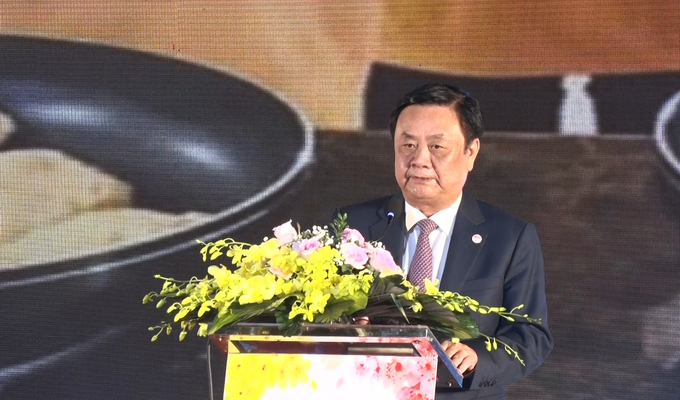
Minister of Agriculture and Rural Development Le Minh Hoan spoke at the seminar. Photo: Nguyen Thanh.
Quang Ninh province is likened to a miniature Vietnam with a strategic position in politics, economics, defense, security, and foreign affairs. The locality has rich and diverse natural conditions favorable for developing economic services, tourism, industry and agriculture, forestry, and fishery production and export.
Regarding fisheries, the water surface area is more than 6,000 km2, with more than 43,000 hectares of mangrove forests, 40,000 hectares of tidal flats, and over 20,000 hectares of bays. In particular, the waters of Quang Ninh Province and Hai Phong City are one of four critical fishing grounds in Vietnam, with diverse and rich aquatic resources.
Regarding forestry, Quang Ninh province owns an area of forest and forestry land of about 435,000 hectares, accounting for 70% of the province's natural area, including 372,000 hectares of forested land. The forest coverage rate remains stable at 55%, higher than the national average. The location of concentrated planted forests reaches over 12,200 hectares/year.
With outstanding potential, Quang Ninh province is developing enormously economically. The growth rate has been high and stable continuously for eight consecutive years; from 2016 to the present, it has exceeded 10%.
As the northern gateway of Vietnam, Quang Ninh province has implemented agricultural cooperation with Japanese areas, including Hokkaido. The section wants Japanese businesses to increase collaboration, invest in deep processing factories, and support exports.
Quang Ninh is also the pioneer province to study in Japan and bring the One Village One Product Movement to the area while advising the Central Government and proactively implementing it into the OCOP Program (One Commune One Product). The OCOP program is a crucial content in the National Target Program to build new rural areas, promote agricultural production, create jobs, and increase income for rural areas.
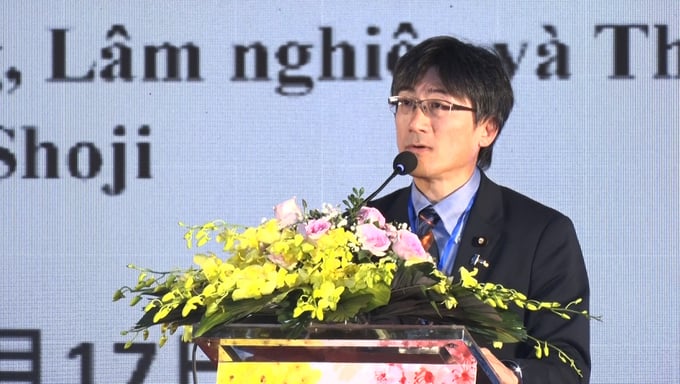
Mr. Maitachi Shoji, Deputy Minister in charge of the Ministry of Agriculture, Forestry and Fisheries of Japan, shared about cooperation in agriculture between Vietnam and Japan. Photo: Nguyen Thanh.
With a commitment to creating an open investment environment, Quang Ninh province will create all conditions for the Japanese to transfer the processing industry to take advantage of the enormous tourist source in Quang Ninh and the Red River Delta region.
Mr. Vu Van Dien, Vice Chairman of Quang Ninh People's Committee, said the province will synchronize economic development goals, increase productivity and product quality, build civilized and modern rural areas, green growth, and Modern urban and service industry development.
Quang Ninh province is building many centers for aquaculture and processing agricultural, forestry, and aquatic products for export. Therefore, the region proposed to the MARD and the Ministry of Agriculture, Forestry, and Fisheries of Japan to allow Quang Ninh to become a center of cooperation between the two countries.
Mr. Maitachi Shoji, Member of the Senate and deputy Minister in charge of the Ministry of Agriculture, Forestry and Fisheries of Japan, shared: "2023 is the year marking the 50th anniversary of establishing diplomatic relations between Japan and Vietnam. We look forward to further strengthening cooperation in agriculture and other fields, contributing to building an even better relationship between the two countries."
The two sides have built and updated a medium and long-term vision of the Japan-Vietnam Agricultural Cooperation. Recently, many efforts have been made to create an environment that makes it easier for Japanese businesses to invest and do business in Vietnam, improving agricultural infrastructure such as renovating old irrigation works. , supporting the development of agricultural extension policies and strategies, and developing human resources by sending Japanese experts to work in Vietnam.
Translated by Tuan Huy
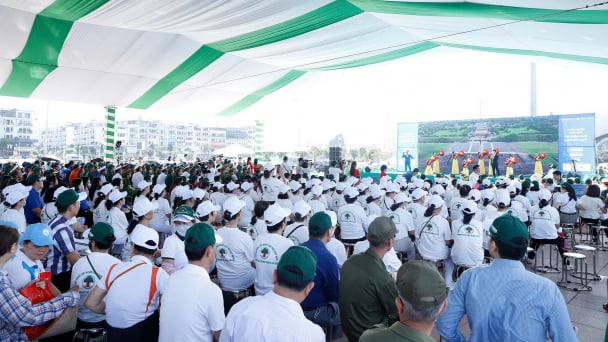
(VAN) On June 1, a grand meeting was held in Ha Long city, Quang Ninh province, to celebrate World Environment Day and launch the National Action Month for the Environment 2025.

(VAN) From the meeting in Ha Long, the United Nations called for the establishment of a legally binding global treaty to end plastic pollution.
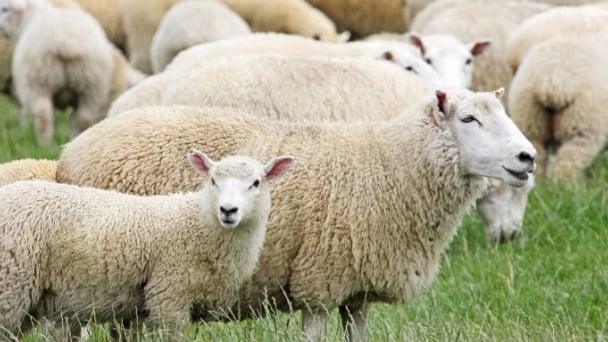
(VAN) ‘Accounting trick’ to support methane-emitting sectors undermines fight against climate change, say researchers.

(VAN) Water conservation, transboundary cooperation and sustainable agriculture are key to securing the region’s future, says FAO Director-General QU Dongyu.
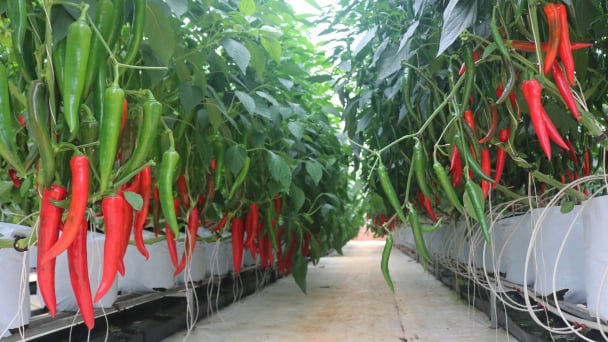
(VAN) Professor Dr. Mai Trong Nhuan believes that Lam Dong will serve as a 'supermarket' of green agricultural products for the entire country and a beautiful destination acting as a 'health charging station' for tourists.

(VAN) A delegation of nearly 50 Vietnamese agencies, agribusinesses, and agricultural associations has officially begun its working trip to the United States.
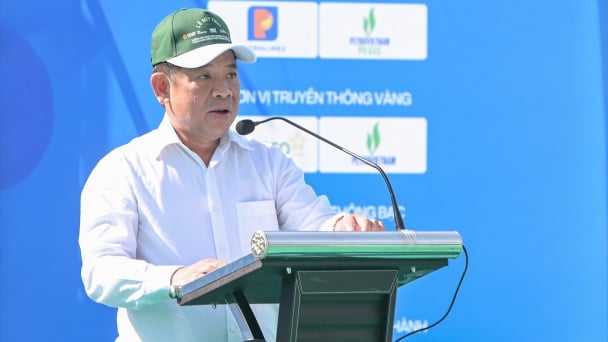
(VAN) Mr. Van Ngoc Thinh, CEO of WWF-Vietnam, warned that plastic waste is the starting point of a chain of ecological degradation and the decline of coastal livelihoods.